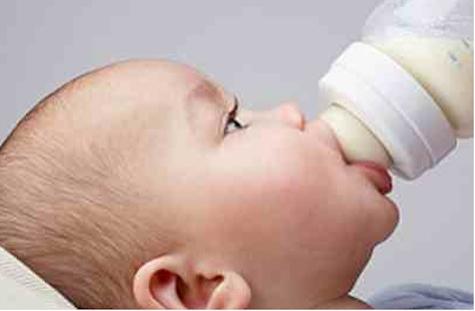Many mothers who bottle-feed feel guilty and isolated, says a researcher who wants to ensure they receive the same level of support as those who breastfeed.
One concern is a lack of guidance can lead to over-feeding and obesity, says Queensland University of Technology's Dr Kimberley Mallan.
But she hopes her new program will prove the value of non-judgmental support.
"What we saw in a pilot study is that a lot of mothers feel guilty. Many of them had tried breastfeeding but had moved to either formula or combination feeding,” Dr Malin told AAP.
"Babies who are formula fed are at increased risk of rapid weight gain which could lead to childhood obesity."
She says individualised feeding plans are an important part of the program.
The information on formula tins is not specific and can lead to a baby being overfed, she says.
"Breastfeeding is optimal but when mothers move to formula for whatever reason, it is important that they have the right information."
She says a good starting point is for them to ask child-health nurses, paediatric dieticians or a GP for help.
Mother of two Emma Spelman hopes Dr Mallan's work will help end the
prejudice that caused her to feel inadequate and isolated with her first baby.
"Like all the other women in my family I am unable to produce any milk.
"No one in the health profession offered me support for either child.
"I was reprimanded by a number of nurses and there was no support. There was no one to ring. There was no helpline. There was nothing.”


















__small.png)










